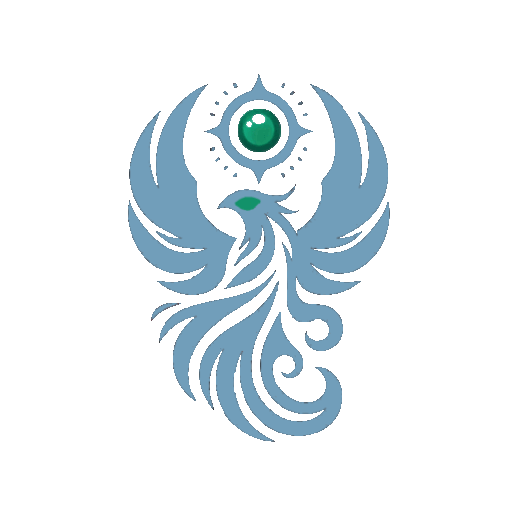The Dance of Personalities
Over the years, I’ve certainly waltzed through my fair share of personality tests and profiles. As a medical representative, these assessments became not just a pastime, but a passion. Among them all, my true favourite was the Myers-Briggs Type Indicator (MBTI), owing to my six years of intensive training in its nuances.
At first, I had trouble digesting the idea of categorizing people into distinct groups defined by specific traits. I struggled with the notion of judging individuals simply to categorize them into usable boxes. This practice initially seemed at odds with my personal journey of seeing the world through a non-judgmental lens.
However, once I pivoted my perspective and began to view personality profiling as a *tool*, a guide to better understanding human behavior, everything changed. I discovered that letting go of ego-driven judgments opened avenues for deeper connections. Within the companies I worked for, I witnessed firsthand how these insights fostered cohesion within teams—transforming dynamics and reducing conflict. Not only did it elevate teamwork, but it also translated into significant benefits in personal relationships.
Understanding the behaviors of family and friends through these frameworks allowed for enhanced communication, deeper empathy, and, of course, stronger bonds. The takeaway? Embrace personality insights as a means for connection, not confinement.
What is a Personality Test?
Personality tests are psychological assessments designed to measure individual characteristics and behavioral traits. They serve the primary purpose of offering insights into a person’s core attributes, which can encompass patterns in emotions, thoughts, and behaviors. By quantifying aspects of personality, these tests can help individuals gain a deeper understanding of themselves and their interactions with others. Typically, personality assessments are structured in a way that evaluates various dimensions of personality, such as openness, conscientiousness, extraversion, agreeableness, and neuroticism, often referred to as the Big Five personality traits.
The methodologies employed in personality testing vary widely, ranging from self-report questionnaires to projective tests. Self-report instruments, such as the Myers-Briggs Type Indicator (MBTI) or the Minnesota Multiphasic Personality Inventory (MMPI), ask individuals to respond to a series of statements or questions that reveal their preferences and tendencies. In contrast, projective tests, like the Rorschach Inkblot Test, require individuals to respond to ambiguous stimuli, with the assumption that their responses will reflect their internal thoughts and feelings.
Historically, the concept of personality testing can be traced back to the early 20th century, coinciding with advancements in psychology and the desire to scientifically assess human behavior. Early theorists, such as Carl Jung, began exploring personality types, while others focused on categorizing different traits. Over time, these foundational theories paved the way for contemporary assessments that integrate and expand on earlier ideas. The development of personality tests has not only contributed to the field of psychology but also has practical applications in various domains, including workplace settings and personal development, enhancing relationship dynamics and communication strategies.
Quiet, the Sunday Times and New York Times Bestseller by Susan Cain, will permanently change how we see introverts – and how you see yourself.
Our lives are driven by a fact most of us can’t name and don’t understand- whether we’re an introvert or an extrovert. This defines who our friends and lovers are, which careers we choose, and whether we blush when we’re embarrassed.
At least a third of us are on the introverted side. Some of the world’s most talented people are introverts. Without them, we wouldn’t have the Apple computer, the theory of relativity and Van Gogh’s sunflowers.
Yet extroverts have taken over. Shyness, sensitivity and seriousness are often seen as being negative. Introverts feel reproached for being the way they are.
Benefits of Personality Testing for Relationships and Communication
Personality testing serves as a valuable tool for enhancing both personal and professional relationships. By understanding various personality types, individuals can gain insight into their own behaviors and the behaviors of others, facilitating improved communication. For instance, in a workplace setting, acknowledging that one colleague is an extrovert while another is an introvert can inform how team members interact, easing tensions and fostering collaboration. When each person’s preferences are recognized, it leads to more effective communication strategies tailored to those distinct traits.
In personal relationships, personality tests can serve as a foundation for meaningful conversations. Couples who engage with these assessments often discover new facets of their partner’s personality, allowing for greater empathy and understanding. For example, if one partner is characterized as a high “openness” individual and the other as a “conscientious” type, they might approach tasks and challenges from differing perspectives. Understanding these differences can mitigate conflicts, as partners learn to appreciate and adapt to one another’s styles rather than view them as obstacles.
Additionally, personality testing plays a crucial role in conflict resolution. By understanding the underlying motivations and insecurity often associated with different personality types, individuals can approach disagreements with a mindset geared toward compromise and collaboration. This informed perspective reduces unnecessary friction, creating a conducive atmosphere for dialogue.
In the context of couples counseling, personality assessments can uncover deep-seated issues and improve emotional connections. Counselors frequently utilize these tests to guide discussions, identifying how disparate personality traits may contribute to persistent patterns of misunderstanding. In the workplace, insights derived from personality assessments can shape team dynamics, enhancing collaboration and productivity by matching individuals with complementary traits.
Overall, the application of personality testing represents a powerful method for fostering strong interpersonal bonds, enhancing communication, and improving relational dynamics across various settings.
n the bestselling ASTROLOGY FOR THE SOUL (nearly 150,000 copies in print!), famous astrologer Jan Spiller reveals the secret of her astoundingly accurate and spiritually valuable astrological readings. Based on the location of your North Node, she shows how to find personal fulfillment, internal harmony, and lasting relationships.
A famous spiritual astrologer shares how to uncover the secrets hidden in your birth chart that hold the key to your future.
“This is required reading for anyone on the spiritual path to fulfilling their soul’s destiny.”-Harold Bloomfield, M.D., New York Times bestselling author of How to Survive the Loss of a Love and How to Heal Depression
Who Should Take a Personality Test?
Personality tests serve as valuable tools for a wide array of individuals seeking to understand themselves and enhance their interactions with others. One of the primary groups that can greatly benefit from personality testing is students. As they navigate the formative years of their lives, students often face pressure to make career choices that align with their strengths and interests. A personality test can help them uncover their preferences and abilities, providing clarity that aids in choosing appropriate academic paths or career options.
Another group that stands to benefit from personality assessments is couples. Relationships can be complex, and understanding the underlying personalities of each partner can lead to better communication and reduced conflicts. By exploring their traits, couples can gain insights into their behaviors and reactions, which can help them address misunderstandings and strengthen their bond. This is especially beneficial for those experiencing challenges in their relationship, as it promotes empathy and knowledge of one another’s emotional needs.
Professionals in various fields also find personality testing to be instrumental in personal development. By gaining a deeper understanding of their own traits and how they interact with colleagues, they can enhance teamwork, productivity, and overall job satisfaction. Organizations increasingly recognize the merit of testing within their hiring processes and employee training programs, thereby fostering an environment where individual strengths contribute positively to team dynamics.
Lastly, anyone at any life stage, from adolescents to retirees, can gain valuable insights through personality tests. These assessments encourage individuals to reflect on their motivations, preferences, and interpersonal styles, facilitating improved relationships across personal and professional spheres. In essence, the benefits of personality testing extend to everyone who aspires to learn more about themselves and enhance their interactions with others.
A book that changes everything – from the legendary Dr Gabor Mate
***THE INSTANT SUNDAY TIMES BESTSELLER***
OVER ONE MILLION COPIES SOLD
We tend to believe that normality equals health. Yet what is the norm in the Western world?
Mental illness and chronic disease are on an unstoppable rise. How did we get here?
And what lies ahead for us?
‘It all starts with waking up… to what our bodies are expressing and our minds are suppressing.’
In this life-affirming book, Gabor Mate connects the dots between our personal suffering and the relentless pressures of modern life – showing that ill health is a natural reflection of our disconnection from our true selves. Drawing on four decades of clinical experience, and stories of people transforming their bodies and minds, Dr Mate offers a hopeful pathway to reconnection and healing.
Different Types of Personality Tests Available Online
In the realm of personal development and self-awareness, a variety of personality tests are readily accessible online, catering to individual needs and preferences. Among the most popular frameworks are the Myers-Briggs Type Indicator (MBTI), the Big Five Personality Traits, and the Enneagram tests. Each of these assessments employs unique methodologies to evaluate personality traits, offering valuable insights into behavior patterns, communication styles, and interpersonal dynamics.
The Myers-Briggs Type Indicator (MBTI) is one of the most widely utilized personality assessments. Developed by Katharine Cook Briggs and her daughter Isabel Briggs Myers, the MBTI categorizes individuals into 16 distinct personality types based on four dichotomies: Introversion versus Extraversion, Sensing versus Intuition, Thinking versus Feeling, and Judging versus Perceiving. This framework emphasizes an individual’s preferred ways of perceiving the world and making decisions, making it particularly useful for enhancing workplace communication and collaboration.
Another prominent assessment is the Big Five Personality Traits, which measures five core dimensions: openness, conscientiousness, extraversion, agreeableness, and neuroticism. This model, regarded for its empirical reliability and validity, allows individuals to gain a nuanced understanding of their behavioral tendencies and emotional responses. Many psychologists and researchers endorse the Big Five as it provides a comprehensive look into personality that can inform both personal development and relationship-building.
Lastly, the Enneagram is a dynamic personality test that categorizes individuals into nine distinct types based on motivations, fears, and underlying desires. It emphasizes the emotional aspects of personality, encouraging personal growth and awareness through understanding one’s behavioral patterns and triggers. When selecting a personality test, it is vital to prioritize credible assessments; factors such as validation, reliability, and user reviews contribute significantly to the test’s accuracy and usefulness. Opting for reputable tests can lead to more meaningful insights and effective applications in personal and professional contexts.
The first definitive guide to using the wisdom of the Enneagram for spiritual and psychological growth
The ancient symbol of the Enneagram has become one of today’s most popular systems for self-understanding, based on nine distinct personality types. Now, two of the world’s foremost Enneagram authorities introduce a powerful new way to use the Enneagram as a tool for personal transformation and development. Whatever your spiritual background, the Enneagram shows how you can overcome your inner barriers, realize your unique gifts and strengths, and discover your deepest direction in life.
The Wisdom of the Enneagram includes-
. Two highly accurate questionnaires for determining your type
. Vivid individual profiles focused on maximizing each type’s potential and minimizing predictable pitfalls
. Spiritual Jump Starts, Wake-Up Calls, and Red Flags for each type
. Dozens of individualized exercises and practical strategies for letting go of troublesome habits, improving relationships, and increasing inner freedom
. Revealing insights into the deepest motivations, fears, and desires of each type
Let Go of Judgements
I vividly recall the first time I was mandated to attend a personality profiling course. The term ‘mandated’ is particularly significant, as I likely would not have opted in myself while in my early twenties. At that age, I was convinced that I had all the answers. Sitting amidst my colleagues, I approached the course with skepticism, diligently searching for flaws in the framework being presented by the instructor.
However, midway through that first day, something shifted. The insights offered began to resonate with me. Gradually, I permitted myself to immerse in the training with an open mind. This transformation allowed me to understand where I fit within various personality types and shed light on the behaviors of others that had previously perplexed me.
Since that initial experience, I have participated in numerous sessions, each offering valuable tools for enhancing communication in my personal and professional relationships. The lessons learned from those early days continue to prove beneficial. I encourage readers to explore available courses, whether through their workplaces or online platforms. Engaging in personality profiling can profoundly alter your interactions and overall approach to relationships, as it has positively influenced my life. I invite you to share your own experiences with personality profiling courses in the comments below.







